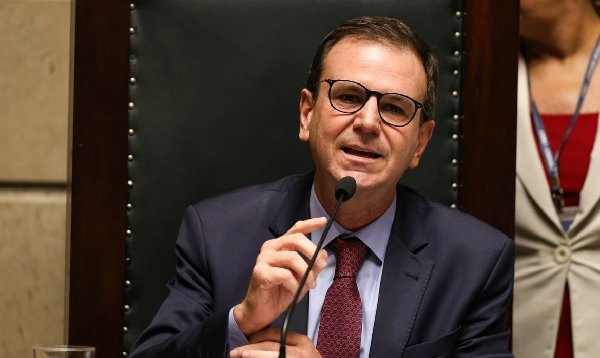One of the primary initiatives announced by Rio de Janeiro’s re-elected mayor, Eduardo Paes (PSD), is the formation of a study group to establish a new Municipal Security Force. This force will be armed and operate in a complementary role alongside the police and the restructured Municipal Guard. The Municipal Security Force is designed to enhance public safety in areas where organized crime does not exert territorial control.
This Content Is Only For Subscribers
To unlock this content, subscribe to INTERLIRA Reports.
Recruitment of Former Armed Forces Members
The mayor revealed plans to recruit former members of the Armed Forces for this new force. In collaboration with the Attorney General’s Office (AGU) and the Ministry of Justice, the initiative aims to leverage the expertise of personnel trained at the Rio de Janeiro Reserve Officer Training Center (CPOR). CPOR trains individuals who serve a few years in the Armed Forces, providing a pool of skilled and disciplined candidates well-suited for this new role.
Timeline for Implementation
According to the city’s forecast, the hiring and training of the first agents will commence in 2025, with patrols starting as early as 2026. A pilot program will be launched in specific areas, potentially including high-profile tourist zones like Copacabana, or neighborhoods with accessible monitoring conditions, such as Ilha do Governador and Urca. This phased approach allows the city to refine operations and address challenges before a broader rollout.
Long-Term Vision for the Force
Conceived as a long-term public policy, the Municipal Security Force aims to achieve a staffing level of 12,000 to 13,000 agents within the next eight years. This figure represents approximately 30% of the current active personnel in the State Military Police, which numbers around 42,000 agents as of 2024. The new force is intended to focus on preventive actions and the combat of petty crimes, offering additional layers of security for residents and visitors alike.
Reservations About the Project
The city government has not disclosed financial details. However, the plan has been met with skepticism by members of Rio’s Civil and Military Police, as well as some experts and members of the city administration. They argue that the measure is unconstitutional. The Constitution provides for a single municipal security force, which is the Municipal Guards. Efforts, they say, should be directed toward equipping the guards, providing training, and even arming specialized units within the existing framework. Another obstacle mentioned is bureaucratic: in addition to the absence of any provision in the municipal budget for the creation of another security agency, recruitment into the new force would need to be preceded by some form of competitive examination or specialized training.
Analysis:
The proposal to create a new Municipal Security Force in Rio de Janeiro, announced by Mayor Eduardo Paes, presents both promising opportunities and notable challenges. The idea of recruiting former members of the Armed Forces aims to capitalize on professionals with established training and discipline, potentially expediting the formation and initial implementation of the force. Additionally, targeting areas not dominated by criminal factions highlights an effort to address gaps in preventive security, particularly in highly visible regions such as tourist hotspots.
However, the project faces significant legal and practical hurdles. The Brazilian Federal Constitution limits the scope of municipal security forces to the existing Municipal Guards. This raises questions about the legality of establishing a complementary armed force and the potential for institutional conflicts with the Civil and Military Police. Furthermore, the absence of a dedicated provision in the municipal budget to fund such an extensive initiative heightens concerns about its economic feasibility in the medium to long term.
The proposal also risks fragmenting public security policies. Establishing a new structure, rather than strengthening and modernizing the existing Municipal Guard, could lead to overlapping responsibilities and operational inefficiencies.




